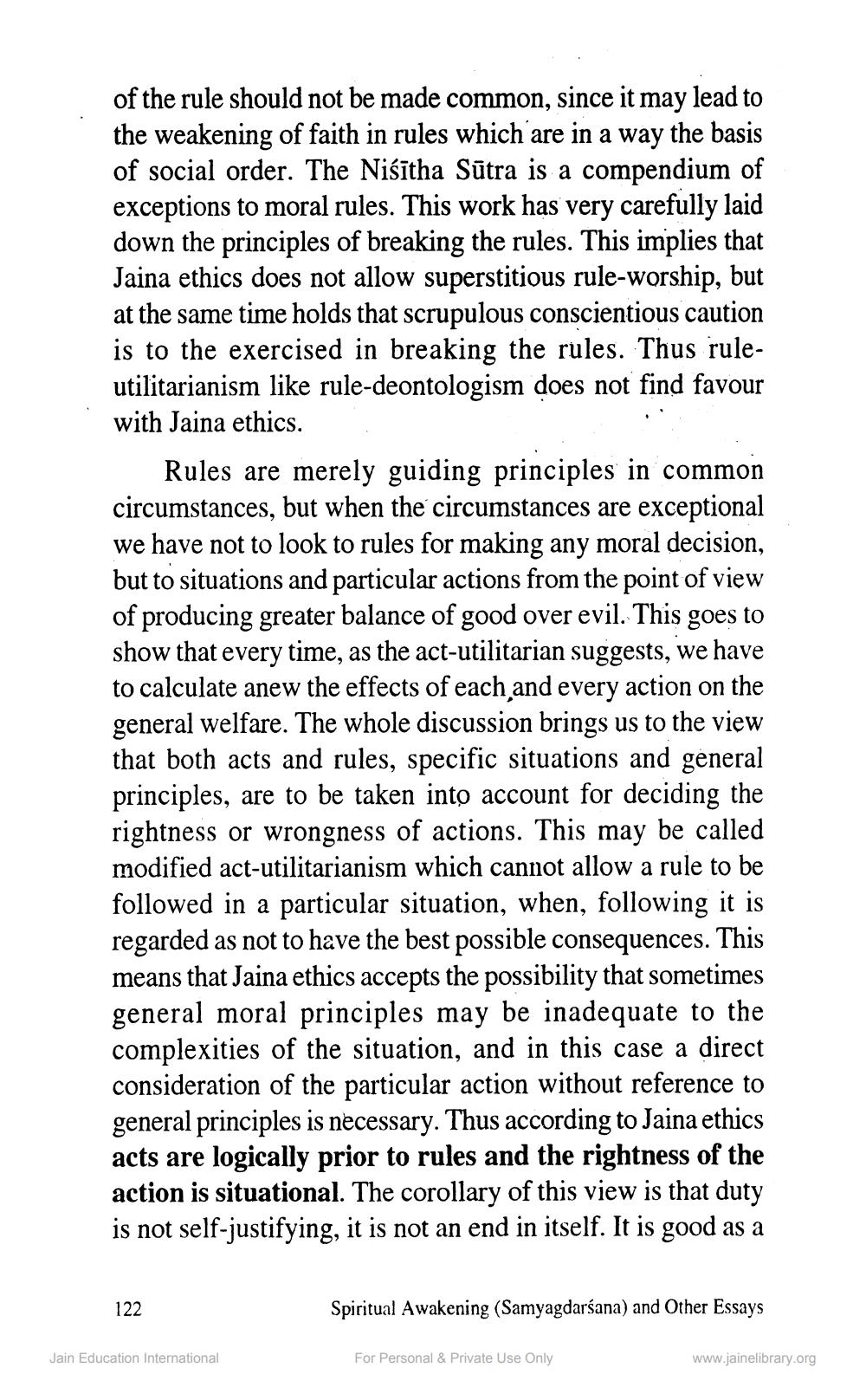________________
of the rule should not be made common, since it may lead to the weakening of faith in rules which are in a way the basis of social order. The Niśītha Sūtra is a compendium of exceptions to moral rules. This work has very carefully laid down the principles of breaking the rules. This implies that Jaina ethics does not allow superstitious rule-worship, but at the same time holds that scrupulous conscientious caution is to the exercised in breaking the rules. Thus ruleutilitarianism like rule-deontologism does not find favour with Jaina ethics.
Rules are merely guiding principles in common circumstances, but when the circumstances are exceptional we have not to look to rules for making any moral decision, but to situations and particular actions from the point of view of producing greater balance of good over evil. This goes to show that every time, as the act-utilitarian suggests, we have to calculate anew the effects of each and every action on the general welfare. The whole discussion brings us to the view that both acts and rules, specific situations and general principles, are to be taken into account for deciding the rightness or wrongness of actions. This may be called modified act-utilitarianism which cannot allow a rule to be followed in a particular situation, when, following it is regarded as not to have the best possible consequences. This means that Jaina ethics accepts the possibility that sometimes general moral principles may be inadequate to the complexities of the situation, and in this case a direct consideration of the particular action without reference to general principles is necessary. Thus according to Jaina ethics acts are logically prior to rules and the rightness of the action is situational. The corollary of this view is that duty is not self-justifying, it is not an end in itself. It is good as a
122
Jain Education International
Spiritual Awakening (Samyagdarśana) and Other Essays
For Personal & Private Use Only
www.jainelibrary.org




